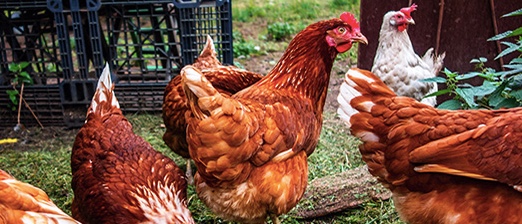The United States Department of Agriculture’s (USDA) Animal and Plant Health Inspection Service (APHIS) has confirmed the presence of highly pathogenic avian influenza (HPAI) in a non-commercial backyard flock (non-poultry) in Suffolk County, New York.
Samples from the flock were tested at the Cornell University Animal Health Diagnostic Center, part of the National Animal Health Laboratory Network, and confirmed at the APHIS National Veterinary Services Laboratories (NVSL) in Ames, Iowa.
APHIS is working closely with state animal health officials in New York on a joint incident response. State officials quarantined the affected premises, and birds on the properties will be depopulated to prevent the spread of the disease. Birds from the flock will not enter the food system.
According to the U.S. Centers for Disease Control and Prevention, the recent HPAI detections in birds do not present an immediate public health concern. No human cases of these avian influenza viruses have been detected in the United States. As a reminder, the proper handling and cooking of poultry and eggs to an internal temperature of 165 ˚F kills bacteria and viruses.
As part of existing avian influenza response plans, Federal and State partners are working jointly on additional surveillance and testing in areas around the affected flock. The United States has the strongest AI surveillance program in the world, and USDA is working with its partners to actively look for the disease in commercial poultry operations, live bird markets and in migratory wild bird populations.
Anyone involved with poultry production from the small backyard to the large commercial producer should review their biosecurity activities to assure the health of their birds. APHIS has materials about biosecurity, including videos, checklists, and a toolkit available by clicking here.

















How did APHIS know to test these specific chickens from all the non-commercial poultry being raised in this country? Do the owners have to submit regular blood, tissue, or other samples for testing?